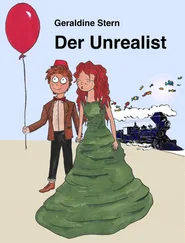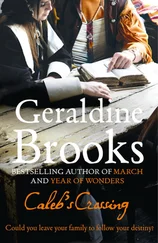“I would be most grateful for that kindness,” I replied, thinking that the great thing about being always among people of noble manners was the inevitable elevation of one’s own. The young woman led the way around to the side of the stone-walled house, through a low gate, and into an orderly kitchen garden, where the nobbly purple tips of asparagus stood straight as sentries and low strawberry beds hung heavy with early green fruit. They would be feasting on berries here before the ground at home had thawed. I followed, noting the way she walked: perfectly erect, yet perfectly at ease.
Inside the kitchen, wholesome morning smells of toasting hoe cake and good, rich coffee made my stomach contract with longing. “What you drugged in, Grace?” said the cook, a wide-hipped woman with a flattened, sweat-glistening face. My hunger must have been evident, for the cook, without even asking, laid a tin plate piled high with hoe cakes in front of me, even as she hectored me about the wicked ways of my kind, and how she didn’t cotton to those who made a fool of her. I nodded vigorously while spooning the food into my mouth.
“No nutmegs of any kind in my kit, ma’am,” I said. “Just a lot of useful and pretty things for the betterment of the body and the mind.”
“Is that right?” she said, her broad mouth turned down in an exaggerated attempt at a scowl. “Better show Annie you Yankee notions then, and be quick about it, for I ain’t got no time for dawdlin’.”
When I first set out from Norfolk, I had been proud of my beautifully japanned trunks with their interior nooks and shelves and clever fastenings for holding stock in place. The contents I had selected myself, with much thought, and I believed my stock, then, to be very fine. I had invested most heavily in goods likely to appeal to women, since I am easier in their company than among those of my own sex. I had combs of tortoiseshell which the fancy-goods dealer had assured me were the latest fashion; jewelry and amulets and garnets and pearls, reticule-clasps and rouge papers; essences and oils and fine soaps and pomatums; silver thimbles and gold and silver spectacles with shagreen cases; sewing silks and cottons and threads and buttons and needles with silver and gold eyes; pencil cases, pen knives, scissors (of Rogers’ make, at the dealer’s recommendation), playing cards, and wafers; fans and fiddle strings; and many diverting picture bricks and puzzles for children. At the floor of each case I had books. These I had not got from the Norfolk dealer, but traded for on my journey, anywhere I could. I would devour them, mastering all their contents, before I bartered them into new hands.
I had, as I said, been proud of these things when I set out so many long months earlier, but I now knew that most of what I had was tawdry. I had learned this slowly, for the planters’ wives had been courteous in their expressions of interest, exclaiming over the jewelry, but buying only utilitarian trifles like the sewing silks or games for the children. It wasn’t their words but my own eyes that had taught me the shortcomings of my wares, for many of the homes in which I had been received were temples of elegance, where even a small item such as a salt dish might be the work of a quattrocento silversmith from Florence or Bruges. And the jewelry! From the luster of the pearls that wrapped slender, unwattled necks and the luminous gems in ancient, heirloom settings, I soon learned to see my bits of paste for what they were.
But the books were another matter. Of these, at least, I did not need to be ashamed. I remember what I had with me that day in some detail, as these proved both the means of securing my place in that beautiful home and the cause of my abrupt departure. I had old favorites, such as A Pilgrim’s Progress, but also newer acquisitions such as the poems and prefaces of Wordsworth, Marsh’s edition of Coleridge’s Aids to Reflection, Cowper’s Life and Letters, Lavater’s Physiognomy, Johnson’s Rasselas, Goldsmith’s Vicar of Wakefield, and John Locke’s An Essay Concerning Human Understanding. For children, I had Noah Webster’s American Spelling Book and nicely illustrated little books of moral fables such as The Fox and Grapes and the tale of the milkmaid who spilled the milk.
When she saw the books the tall slave named Grace straightened and asked if I would like a ewer of warm water for my toilet before she showed me to the master’s room. I had shaved by the river that morning before I’d made my crossing, but I was pleased at the chance for a hot wash. When Grace returned, she said the master bade me to bring the books and leave the rest. She led the way through the narrow hall that joined the kitchen, warming room, and buttery to the cool expanse of the main house. The house was not especially large, nor by any means the grandest I had been in—some of the plantation homes along the James were more like palaces—but it was perfect in proportion and exquisite in appointments. White walls soared to high ceilings plastered with elaborate swags and rosettes. Turkey carpets in jewel colors warmed the dark wood floors. In the center of the house a sinuous staircase with acanthus leaf carving swept up from an oval entry hall. Grace gestured with her long-fingered hand—not hands that appeared much accustomed to heavy chores, I noted—indicating I should sit upon a marble bench that fit the curve of the south wall, directly opposite a faux-grained door flanked by marbles of Apollo and Daphne and Prometheus Bound. “That is the master’s library. He will be with you presently,” Grace said, and swept away to her duties.
The home’s massive entrance was to my right, the wide door surrounded by lights of beveled glass, and I sat there, watching the golden morning sunshine fracture into tiny rainbows. Because I had been staring into the bright light, I could not see him well when he at last opened the library door, for he stood in its shadow. There was an impression only; of great height, very erect bearing, and a mellow voice.
“Good day to you, sir. Would you kindly come in?”
I entered and I stopped and twirled as if I were on a pivot. It was a double-height room, with a narrow gallery at the midpoint. Books lined every inch of it. A very large, plain, and beautiful rosewood desk stood in the center.
“Augustus Clement,” he said, holding out his hand. I shifted the weight of the books into the crook of my left arm and shook his hand absently, for I was transfixed by the magnitude of his collection. “I’ve always imagined paradise as something like a library. Now I know what it looks like.” I barely realized I had spoken aloud, but Mr. Clement laughed and clapped me on the shoulder.
“We get a few of you men through here, or we used to, before my daughter married. I think the word went out that she was—what do you call it? A mark? A touch? In any regards, she bought a bushel of worthless notions from your colleagues over the years; I think she just liked to talk to young men, actually. But I’ve never come across one of you with an interest in books. Set them down there, would you?”
I placed them on the rosewood desk, and he worked briskly through the pile. Now that I had seen the magnitude of his library, I doubted he would find anything of interest to him. But the Lavater Phyisognomy caught his eye. “This is a later edition than the one I have; I am curious to see his revisions. Tell Grace what you require for it and she will see to your payment.”
“Sir, I don’t sell the books for cash.”
“Oh?”
“I trade for them—barter—a book for a book, you know. That way I keep myself in something fresh to read along the journey.”
“Do you so! Capital idea!” he said. “Though no way to make a profit.”
Читать дальше












